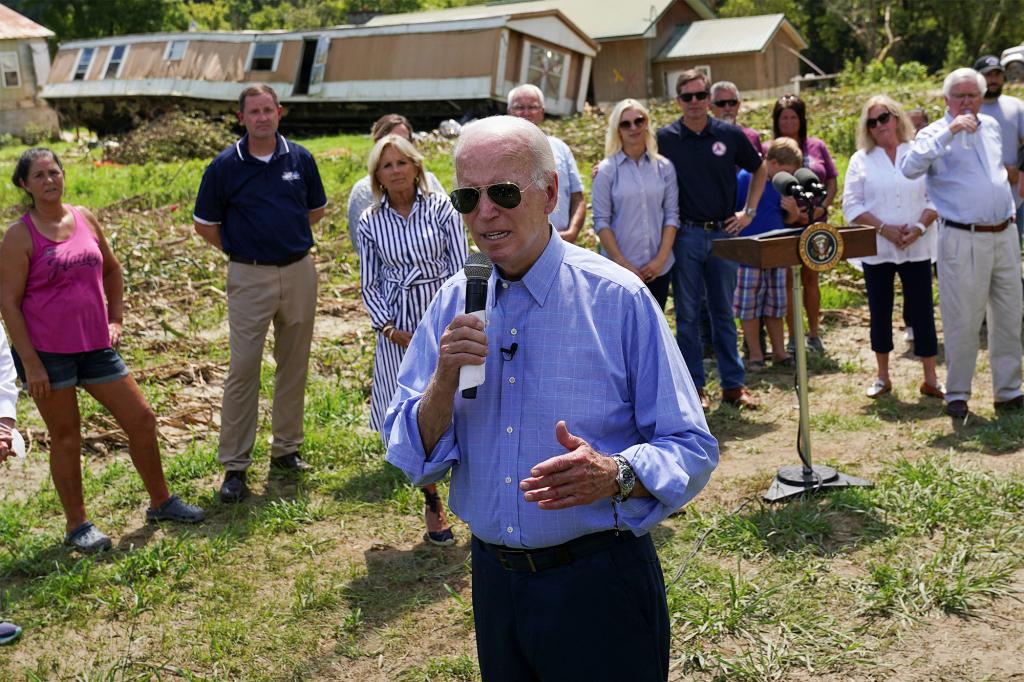President Biden seemed unfamiliar Monday with the specifics of the massive spending bill dubbed the Inflation Reduction Act that Senate Democrats passed Sunday, saying only that it funds healthcare “and God knows what else.”
Moments earlier, the president misstated the size of last year’s $1.2 trillion bipartisan infrastructure spending law while touring flood damage in Kentucky.
“We’ve never done this before, but because of a number of things we got done on a bipartisan basis — like a billion, two hundred million-dollar infrastructure project — like what we’re doing today, we passed yesterday, helping take care of everything from health care to God knows what else,” said Biden, standing in front of a flood-damaged home on his first official trip since recovering from a “rebound” case of COVID-19.
“What we’re going to do is — we’re going to see, for example, they got to put a new water line in the community,” the president stumbled. “There’s no reason why they can’t at the same time be digging a line that puts in a whole new modern line for Internet connections. why? Why can’t we do that? So it’s going to be different. We’re going to come back better than before.”

Biden spoke for only about four minutes, much of the time with his back to cameras as he looked around at buildings and people impacted by the recent flooding.
At one point in his remarks, the president — who turns 80 in November — suggested it may become possible to control the weather, before jokingly telling his destitute storm-ravaged audience, which included the commonwealth’s Democratic Gov. Andy Beshear and Rep. Hal Rogers (R-Ky.), that it was time to “run laps.”
“We’re all Americans. Everybody has an obligation to help. We have the capacity to do this. It’s not like it’s beyond our control. The weather may be out beyond our control for now. But it’s not beyond our control,” Biden said.


The Senate-passed legislation, which is expected to pass the House of Representatives as early as Friday, provides nearly $400 billion for environmental programs, including tax credits of up to $7,000 to buy electric vehicles, and roughly $64 billion to extend more generous COVID- 19-era Obamacare subsidies.
The spending is offset by new taxes on corporations, including a new 15% corporate minimum tax, increased IRS enforcement and allowing Medicare to directly negotiate drug prices.
.
